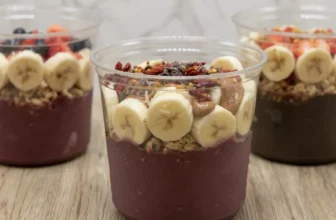
You know the importance of maintaining a balanced diet, but do you truly understand which vitamins and minerals your body needs daily? Beyond the generic advice, a deeper look into these essential nutrients could shed light on how they affect your overall well-being. From supporting immunity to promoting bone health, each of these micronutrients plays a crucial role in keeping your body functioning optimally. So, are you ready to uncover the key vitamins and minerals that should be a part of your daily intake?
Importance of Essential Nutrients
Understanding the vital role that essential nutrients play in maintaining overall health is crucial for making informed dietary choices. Your body relies on a variety of vitamins and minerals to function optimally. These essential nutrients are necessary for processes like energy production, immune system support, and cell repair. Without an adequate intake of vitamins and minerals, your body may struggle to perform these essential functions efficiently.
Essential nutrients can be found in a wide range of foods, including fruits, vegetables, whole grains, lean proteins, and dairy products. By consuming a diverse and balanced diet, you can ensure that you're getting the necessary nutrients your body needs to thrive. Remember, each essential nutrient serves a specific purpose in your body, so it's important to incorporate a variety of foods into your meals to cover all your nutritional bases.
Prioritizing nutrient-dense foods won't only support your overall health but also help you feel your best every day.
Top Vitamins for Daily Intake
Ensuring you consume a variety of nutrient-rich foods daily is essential for meeting your body's vitamin requirements. Vitamins play crucial roles in various bodily functions, supporting your overall health and well-being.
Vitamin C, known for its immune-boosting properties, is found in citrus fruits, strawberries, and bell peppers.
Vitamin D, important for bone health and immune function, can be obtained from sunlight exposure and fortified foods like milk and cereals.
Vitamin A, crucial for vision and skin health, is abundant in carrots, sweet potatoes, and spinach.
B vitamins, including B6 and B12, are essential for energy production and nerve function, present in foods like poultry, fish, and fortified grains.
Vitamin E acts as an antioxidant, protecting cells from damage, and can be found in nuts, seeds, and vegetable oils.
Including a variety of vitamin-rich foods in your daily diet is key to ensuring you meet your body's vitamin requirements for optimal health.
Key Minerals for Health
For optimal health, incorporating key minerals into your daily diet is essential. Minerals play a crucial role in various bodily functions, aiding in everything from bone health to enzyme function. One of the most important minerals is calcium, which is vital for strong bones and teeth. Incorporating dairy products, leafy greens, and fortified foods can help you meet your daily calcium needs.
Another essential mineral is iron, necessary for transporting oxygen in the blood. Foods like red meat, poultry, beans, and fortified cereals are rich sources of iron.
Magnesium is also vital, as it supports muscle and nerve function, as well as immune health. You can find magnesium in nuts, seeds, whole grains, and leafy vegetables.
Potassium is crucial for maintaining healthy blood pressure and fluid balance in the body. Bananas, sweet potatoes, and beans are excellent sources of potassium.
Lastly, zinc is essential for immune function and wound healing, found in foods like meat, shellfish, legumes, and seeds. By incorporating these key minerals into your diet, you can support your overall health and well-being.
Tips for Balanced Nutrition
To maintain a balanced diet, focus on incorporating a variety of nutrient-rich foods into your meals. Include plenty of fruits and vegetables in your daily intake as they provide essential vitamins, minerals, and fiber. Opt for whole grains like quinoa, brown rice, and oats over refined grains to boost your fiber and nutrient intake. Lean sources of protein such as chicken, fish, tofu, or legumes are crucial for muscle repair and overall health. Don't forget about healthy fats found in foods like avocados, nuts, and olive oil, which support brain function and heart health.
Avoid excessive intake of processed foods, sugary snacks, and high-fat meals, as they can lead to weight gain and nutrient deficiencies. Instead, strive for a colorful plate filled with a variety of foods to ensure you're getting a broad spectrum of nutrients. Stay hydrated by drinking an adequate amount of water throughout the day, and consider incorporating herbal teas or infused water for added flavor.




